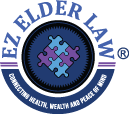42 U.S.C. § 1396 et seq. https://www.law.cornell.edu/uscode/text/42/chapter-7/subchapter-XIX 42 U.S.C. § 1396p https://www.law.cornell.edu/uscode/text/42/1396p 42 U.S.C. § 1396r-5 https://www.law.cornell.edu/uscode/text/42/1396r-5 42 C.F.R. Part 431 https://www.law.cornell.edu/cfr/text/42/part-431 42 C.F.R. Part 435 https://www.law.cornell.edu/cfr/text/42/part-435 42 C.F.R. Subchapter C https://www.law.cornell.edu/cfr/text/42/chapter-IV/subchapter-C 20 CFR 416.1110 et seq. (SSI – Income) https://www.ssa.gov/OP_Home/cfr20/416/416-1100.htm 20 CFR 416.1201 et seq. (SSI – Resources) https://www.ssa.gov/OP_Home/cfr20/416/416-1201.htm Program Operations Manual System https://secure.ssa.gov/apps10/ […]
Blog

“With the memory of the pandemic’s toll in nursing homes still raw, the COVID-19 relief law is offering states a generous funding boost for home- and community-based care as an alternative to institutionalizing disabled people.” However, funding for the current bill is temporary, “raising concerns it will have just fleeting impact…” For the full story, […]
Medicaid, just one of the sets of rules applicable to most older adults, is one of the most complex laws ever enacted. Even Judges have difficulty understanding it. What follows are a few quotes from court decisions: “The Social Security Act is among the most intricate ever drafted by Congress. Its Byzantine construction, as Judge […]
The husband died six months after the decedent. The decedent had required nursing home care, and she received Medicaid assistance to pay for the care. The estate’s personal representative allowed $ 63,880 as a claim against the estate but disallowed $ 44,533. The county contended that it was entitled to full recovery because the value […]

Plaintiffs were a group of couples with one spouse in the nursing home and other spouse still in the community. In each case, the Community Spouse was the beneficiary of a Community Spouse Annuity Trust (“CSAT”). Some institutionalized spouses had been denied Medicaid, while others had applications pending. The Plaintiffs challenged the State’s treatment of […]

Guardians of two nursing home residents brought suit contending that the State erred by beginning a transfer penalty on the first day of the month after a transfer, rather than on the month of the transfer. The Court found the claims barred by the Eleventh Amendment. It dismissed the remainder of the Complaint for failure […]

Hazel Wilson and her husband executed and funded a revocable living trust in 1991. The trust became irrevocable at her husband’s death in 1998, forming an A/B trust. Hazel had access to the principal and income from trust A, but only the income from trust B. In 1999, Hazel transferred $636,638 in property to her […]
Carl Bergman had an annuity account which he transferred to his wife after he was admitted to a nursing home. After Lucille, his wife, was diagnosed with cancer, she gifted those assets to their children. Following Lucille’s death, the State filed an estate recovery claim in Lucille’s estate relating to payments made for Carl’s care. […]
Prior to his death, Harold Ullmer was on Medicaid. At his death, Harold and his wife, Agnes, owned their home in joint tenancy. Agnes continued to reside in the home. The State recorded a notice of lis pendens against the property, and filed a petition seeking to impose a lien in the amount of $144,475.76 […]
Beverly Tutinas’s husband, Julian, was on Medicaid, but she was not. When Beverly died owning a home valued at $69,641.89 and a car worth $2,000, the state of Illinois filed a claim against Beverly’s estate, seeking to recover what Medicaid had invested in Julian’s care. The court found that, although the state clearly had a […]

